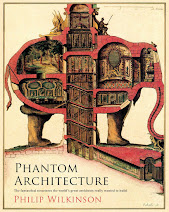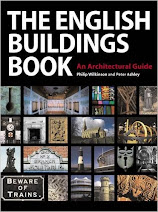In 1671, the justices of Oxford ordered all parishes in the county to keep a fire engine. This one is a survivor from that period – or at least from the 18th century – and is thought to have been made by Richard Newsom or Newsham of Cloth Fair, London.* Nowadays the church seems an odd place to keep a fire engine, but in the 17th ands 18th centuries it made a lot of sense. Everyone knew where the church was, it would probably have been left unlocked (or the key holder would be widely known), and churches were often, though by no means always, in the middle of the village. In any case there were few alternatives in most parishes: the church was the only public building. So fire engines, consisting basically of a handful-operated pump and tank on wheels, were often stored in churches, along with other equipment, such as metal hooks on long poles that were used to pull burning thatch off roofs.
Church records often show expenditure on maintaining a fire engine. At Hook Norton there’s also a record of money paid to buy a fire hook for the village. One wonders how effective these devices would have been. But in isolated rural parishes there was little alternative to whatever basic aid the locals could give. And in many places that no doubt involved a few men and a hand pump. This one at Hook Norton, known apparently as the Sentinel, was still in use in the 1890s. Now it seems to be used mainly as a stand for leaflets and hassocks. But at least it is still there, along with a fire hook and bucket, glowing resplendently red after a restoration a few years ago.
- - - - -
* This engineer made a similar fire engine in Wiltshire that I’ve come across previously.









2 comments:
Wonderful! A device very much like this one, though not so beautifully painted, showed up the other night (minor spoiler alert) in Andrew Davies's controversially imagineered version of Jane Austen's unfinished novel Sanditon. No one said where they'd wheeled it from, but I did wonder. Now I know. And how effective would such a device have been? Here, if nowhere else, Davies is historically accurate (major spoiler alert) in allowing the fire to win.
Splendid! And so actually are modern fire engines. I simply love the thrill of going into an unfamiliar parish church - you never know what you might see!
Post a Comment